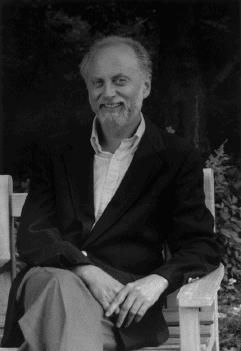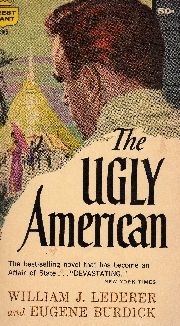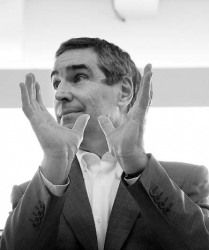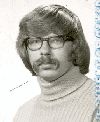
Publisher:
Bonnie King
CONTACT:
Newsroom@Salem-news.com
Advertising:
Adsales@Salem-news.com

~Truth~
~Justice~
~Peace~
TJP
Oct-12-2009 21:40

 TweetFollow @OregonNews
TweetFollow @OregonNews
The American Anti-Intellectual Part 1
Daniel Johnson Salem-News.comAmerica can only be saved by intellectuals as a class.
 Image by NEFF Courtesy: hermes-press.com |
(CALGARY, Alberta) - In the 2004 election, Republican operative Peggy Noonan, writing in the Wall Street Journal, said “Mr. Bush is the triumph of the seemingly average American man. He’s not an intellectual. Intellectuals start all the trouble in the world.”
Of course, I have been aware of this for many years, after reading Harvard economist and JFK confidant John Kenneth Galbraith who said: "Intellectuals have usually thought themselves disliked because others were jealous of their brains. More often it's because they make trouble."
Intellectuals see the world through different lenses than the majority of people. As a result they tend to ask questions or adopt positions that ordinary people would miss or find disturbing.
Sociologists Peter L. Berger and Thomas Luckmann, see intellectuals as society's metathinkers. Their role, not always welcome or appreciated, is to see the world in diverse ways. They define an intellectual "as an expert whose expertise is not wanted by the society at large."
Intellectuals and scientists see the world in similar but not identical ways.
Astronomer George Greenstein describes the scientific mind:
 Astronomer George Greenstein |
“Not long ago a meteor fell to earth not far from where I live. The thing landed right on top of somebody’s home: punched a hole in the roof, knocked over a lamp, and came to rest on the carpet in the front hall. News broadcasts that evening showed the owners standing around looked bemused while insurance adjusters went over the damage.
“So...duly noted, and soon to be forgotten. But as the days passed, I found that I was not forgetting that meteor. My mind kept circling back to it—but from different angles than those reported in the news. I found myself thinking of it not as a stone that fell to earth, but as a silent voyager—an isolated, lonely chunk that had floated undisturbed through interplanetary voids for untold ages before being slammed into by this great, noisy planet of ours. For how long? Millions of years? Billions? You could tell by looking for the microscopic tracks of cosmic rays etched within it: the more tracks, the longer it had been up there. On other days I caught myself wondering if the thing had been spinning, tumbling gently end over end until the collision. Probably: everything else in the solar system rotated—planets, moons. Why this should be so was something of a question, but the facts were clear. And yet another question: How had it gotten up there in the first place? It takes intense pressure to form a hard stone, a pressure difficult to come by in the empty depths of space. The meteor could only have been formed deep in the heart of some nameless extraterrestrial body, which must then have been broken up, sending it off into space.
“So I played with the meteor for several days, before eventually dropping the matter and moving on to other things....The moral I want to draw from my story has nothing to do with the meteor, but plenty to do with me. The way I had thought about it other people might find strange—but it is utterly characteristic of the mind of the scientist [and the intellectual]. Anybody could see that stone lying on the carpet, the shattered lamp, and the hole in the roof. But the scientist is likely to peer not so much at the hole as through it—through it, and out into the Other World.
“Scientists are convinced that there’s more going on than meets the eye. They keep seeing clues to a world lying beyond that of daily reality....The Other World is hard to see. It does not lie about us so obviously as tables and chairs. You have to work to catch a glimpse of it.”
 Republican operative Peggy Noonan |
America today, as evidenced by the likes of Peggy Noonan and George W. Bush is a profoundly anti-intellectual society. This is what is dragging America down and virtually guarantees its continuing global decline.
Intellectuals are born not made. I know this from my earliest days in school. I was always the one who asked the difficult or non-conforming questions. I wasn’t trying intentionally to make trouble or make people feel awkward, but there it was…
This reminds me of a very old Beetle Bailey cartoon. Sarge is after Beetle and says, “I’m going to pound you to smithereens.”
Beetle interrupts, saying, “You know I’ve always wondered about a smithereen. How big is it? Is it larger or smaller than a smither?
In the next panel he and Sarge are looking it up in a book and Sarge says, “You’ve got a good head on your shoulders.” In the background, Killer, says: “And he wants to keep it there.”
Now America
In a 1980 campaign speech Ronald Reagan said, "Why should we subsidize intellectual curiosity.”
Indeed.
Paul Krugman’s column in last week’s New York Times was called “The Uneducated American”. He wrote:
“Most people, I suspect, still have in their minds an image of America as the great land of college education, unique in the extent to which higher learning is offered to the population at large. That image used to correspond to reality. But these days young Americans are considerably less likely than young people in many other countries to graduate from college. In fact, we have a college graduation rate that’s slightly below the average across all advanced economies.” And, because education is a state responsibility, and because states are forced to cut back in so many areas, the prospects for continued American decline in education are high. Cutbacks in education are happening today in every state in the nation.

In 1958 William Lederer and Eugene Burdick coined the term Ugly American from the title of their book which was made into a 1963 movie starring Marlon Brando. The term is generally defined pejoratively as Americans traveling or living abroad who remain ignorant of local culture and judge everything by American standards.
Alas, the Ugly American is alive and well—the most recent instance being Serena Williams's outburst at the 2009 US Open semifinal against Kim Clijsters. Domestically, there’s the reaction of Chicagoans to not being awarded the 2016 Olympics (Americans are entitled, are they not?). As columnist Gary Mason wrote in the Globe and Mail: “Only in the United States, or today's United States anyway, could a decision by a sitting U.S. president to support what turned out to be a losing Olympic bid ignite such debate, prompt such insidious personal attacks and reveal such profound ignorance.”
A key factor in the loss, Mason says, “is an utter failure by the Chicago group to understand and appreciate the sometimes Byzantine politics of the Olympic movement.” Chicago got 18 votes in the first round and Mason reports that “an IOC member told me yesterday that 35 IOC delegates told Chicago officials that they'd voted for their city in the first round.” Hmmm.
Rush Limbaugh admires many aspects of Reaganism, but is especially animated by Reagan’s belief in American exceptionalism.
“Reagan rejected the notion among liberals and conservatives alike who, for different reasons, believed America was in a permanent state of decline…He had faith in the wisdom of the American people. . . . He knew America wasn’t perfect, but he also knew it was the most perfect of nations. Reagan was an advocate of Americanism.”
What wisdom of the American people???
American 15-year-olds rank 24th out of 29 countries in math literacy, and their parents are as likely to believe in flying saucers as in evolution; roughly 30 to 40 percent believe in each.
There was a telling incident at a town hall held by Representative Gene Green, (D-Tex) over the summer. An activist turned to his fellow attendees and asked if they “oppose any form of socialized or government-run health care.” Nearly all did. Then Representative Green asked how many of those present were on Medicare. Almost half raised their hands.
The best argument against so-called "intelligent design" has always been humanity itself. At a time when only 40 percent of Americans believe in evolution, and only 13 percent know what a molecule is, America is an argument for "substandard design."
But put aside the evolution debate which is only a symptom of something much deeper and more serious: an overwhelming nationwide illiteracy about science and math as a whole.
One-fifth of Americans still believe that the Sun goes around the Earth, instead of the other way around. And only about half know that humans did not live at the same time as dinosaurs. (The Flintstones was not a documentary.)
If there was ever an argument against the universal franchise of democracy, America is that argument.
If you look at American politics overall (Sarah Palin et al), it’s like an insane asylum. And, America is being run by the inmates. Representative Joe Wilson in his famous “You lie,” attack against President Obama last month was clearly, demonstrably, irrefutably wrong in his assertion. But the result was increased support for him by constituents back in South Carolina. Most of the voters across the country are just as ill informed.
The fundamental failing in American democracy is an ill founded belief in egalitarianism—the belief that all citizens are equal. Before the law, this is ostensibly true, but in the voting booth it is demonstrably and tragically, false. (This is true in all democratic nations, but it is most damaging in the United States.)
The eventual failure of America was built-in from the start. The founding fathers were all intellectual products of the Enlightenment, an eighteenth century cultural mood that extolled the power of Reason over mysticism and religion. It turned out to be a false understanding of human nature. The founding fathers were correct in their initial denial of the franchise to the rank and file of people working in fields and factories across the new nation. To limit the franchise only to those holding property was not a guarantee that the electorate would be more intelligent, but at least it ensured that the electorate was more likely to be educated.
When I was in high school, I read a book called The Fate of Man by Harvard historian Crane Brinton. I lost the book decades ago but I found a copy again recently and reread it. At the beginning, what Brinton says jumps right out. He says:
“I think it is clear that not all human beings can think. Of course I use that word snobbishly, imprecisely—and usefully—to mean a particular kind of thinking, the kind of manipulation of ‘abstraction’ you and I are indulging ourselves in, thinking ‘philosophically.'” Brinton was talking about intellectuals, his readers, sharing ideas through the medium of his book. (I once proudly showed a very large tome to a friend and told her how great I thought it was. She said: "Do you know what I'd do with that book? I'd close it.)
 Michael Ignatieff in Queens |
When Michael Ignatieff was an historian at Harvard, and before he returned to his native Canada to go into politics, he described the intellectual in a 2000 CBC radio interview:
“An intellectual is not an academic. An intellectual is not a specialist. And an intellectual is not a journalist. We've got plenty of academics, plenty of specialists, plenty of journalists. What we don't have enough of are people who ask questions of principle, fundamental principles about political and moral issues and who put together general propositions from a host of different sources.
““An intellectual is a generalist, an intellectual is someone who is not an expert in a particular field but who takes propositions that are lying around the tables of many different places; journalism, academics, specialisms of various kinds of science and puts together general frameworks, general theories, general accounts, whose ultimate audience is the man in the street and whose ultimate purpose is to mold and shape the conversation of a country or a nation or a people. Intellectuals do that. It’s a frankly elitist function in the sense that it presumes that an intellectual does know more than other people. And we become, I think, much too apologetic about that elitism.”
He attacks outright the belief that elitism is wrong.
“Some people do know more than other people. Some people have earned the right to speak. Some people have earned the right to know things. They paid for it in hard labour. It's not a social privilege. It's not a financial privilege. It's just the privilege of having read all the books you see around [me]. And it's not something to be proud of. You put in the years.
““That's an intellectual's legitimacy. He's put in the years and also the test of legitimacy is intellectual honesty. Not being in hock to some ideology, not being in hock to some institution. Being independent. Being able to stand up and say what the hell you please.”
In American politics this latter ability is the kiss of death for any politician, which is the fundamental failing of American politics. American egalitarianism denies most of what Ignatieff said, point by point--like the Chinese water torture.
Ferdinand Lundberg |
American journalist Ferdinand Lundberg pointed out the Enlightenment failure:
“In giving them electoral democracy, history played a dirty trick on the American people, most of whom actually want and need benevolent paternalism…In getting electoral democracy, the American people had figuratively thrust upon them a political version of a Stradivarius violin. But they had not the least conception of how to play it…As an avalanche of evidence shows, people in general are not the least bit democratic at heart. True democracy, of course, can be learned; but only under carefully controlled conditions such as are rarely present in the upbringing of most children.”
America can only be saved by intellectuals as a class, but the booboisie (a term coined by the American journalist H. L. Mencken) will rise up on their hind legs to prevent or undo any progress. (Only three countries in the world don’t use the metric system: Burma, Liberia and the United States. Like the mother watching the troops march past: "Look, everyone is out of step but my son John!) William F. Buckley once said: “I'd rather be ruled by the first hundred names in the Cambridge phone book than by the faculty of Harvard University.”
The booboisie thinks this a compliment without realizing they are being suckered. America has the largest military budget in history; more nuclear weapons than probably all other nations combined but when it comes to matters of public policy, like global warming and universal health care the political masters are giving the booboisie a long leash. Divide and rule.
The optimist will argue that America has pulled out of difficult spots in the past. This is true, except that in the past there was no globalization, no economic juggernauts like China and India to contend with. Rome fell. The Ottoman empire fell. The British Empire (on which the Sun never set) also fell. Depending on the definitions you use for when the British Empire began and ended—it prevailed for between two hundred and three hundred years. Today's reality is a situation where American exceptionalism will no longer prevail. Nothing lasts forever.
===============================================
 Daniel Johnson was born near the midpoint of the twentieth century in Calgary, Alberta. In his teens he knew he was going to be a writer, which explains why he was one of only a handful of boys in his high school typing class—a skill he knew was going to be necessary. He defines himself as a social reformer, not a left winger, the latter being an ideological label which, he says, is why he is not an ideologue, although a lot of his views could be described as left-wing. He understands that who he is, is largely defined by where he came from. The focus for Daniel’s writing came in 1972. After a trip to Europe he moved to Vancouver, British Columbia. Alberta, and Calgary in particular, was extremely conservative Bible Belt country, more like Houston than any other Canadian city (a direct influence of the oil industry). Two successive Premiers of the province, from 1935 to 1971, had been Baptist evangelicals with their own weekly Sunday radio program—Back to the Bible Hour, while in office. In Alberta everything was distorted by religion.
Daniel Johnson was born near the midpoint of the twentieth century in Calgary, Alberta. In his teens he knew he was going to be a writer, which explains why he was one of only a handful of boys in his high school typing class—a skill he knew was going to be necessary. He defines himself as a social reformer, not a left winger, the latter being an ideological label which, he says, is why he is not an ideologue, although a lot of his views could be described as left-wing. He understands that who he is, is largely defined by where he came from. The focus for Daniel’s writing came in 1972. After a trip to Europe he moved to Vancouver, British Columbia. Alberta, and Calgary in particular, was extremely conservative Bible Belt country, more like Houston than any other Canadian city (a direct influence of the oil industry). Two successive Premiers of the province, from 1935 to 1971, had been Baptist evangelicals with their own weekly Sunday radio program—Back to the Bible Hour, while in office. In Alberta everything was distorted by religion.
Although he had published a few pieces (unpaid) in the local daily, the Calgary Herald, it was not until 1975 that he could actually make a living from journalism when, from 1975 to 1981 he was reporter, photographer, then editor of the weekly Airdrie Echo. For more than ten years after that he worked with Peter C. Newman (1979-1993), Canada’s top business writer (notably a series of books, The Canadian Establishment). Through this period Daniel also did some national radio and TV broadcasting with the CBC. You can write to Daniel at: Salem-News@gravityshadow.com
Articles for October 11, 2009 | Articles for October 12, 2009 | Articles for October 13, 2009
Quick Links
DINING
Willamette UniversityGoudy Commons Cafe
Dine on the Queen
Willamette Queen Sternwheeler
MUST SEE SALEM
Oregon Capitol ToursCapitol History Gateway
Willamette River Ride
Willamette Queen Sternwheeler
Historic Home Tours:
Deepwood Museum
The Bush House
Gaiety Hollow Garden
AUCTIONS - APPRAISALS
Auction Masters & AppraisalsCONSTRUCTION SERVICES
Roofing and ContractingSheridan, Ore.
ONLINE SHOPPING
Special Occasion DressesAdvertise with Salem-News
Contact:AdSales@Salem-News.com

googlec507860f6901db00.html



Terms of Service | Privacy Policy
All comments and messages are approved by people and self promotional links or unacceptable comments are denied.
CaptainAmerica October 31, 2009 7:26 pm (Pacific time)
I have a question: Who defines, elects, honors, or certifies one to be an "Intellectual"? Do they have to lean in any political direction to be appointed? Will politics not hold gigantic sway over who is even eligible? Will not the media outlets oppose/support the candidates that most speak in their tone publicly? Since this is most obviously the case, I ask again: Who defines an "Intellectual"? Ideas are great, we all need to have them; however, we all react to them differently! Some people go out and follow their dreams, do the hard work, the long hours, the loss of relationships, while sacrificing years of their lives, and do without voluntarily to win the prize...others do not! Shouldn't the "Intellectual" understand that those willing to persevere, deserve the spoils that go with it? America NEEDS to have people who are willing to follow their dreams, because there is reward for them to do so! If we Americans believe Socialism, Communism, Marxism, or any other nuevo-marquee for "collective good" is the right direction for this country...then the light in America's eye will be out, and She will be dead.
Daniel October 14, 2009 5:18 pm (Pacific time)
Intelligence can be used in the service of good or evil . Nazi Germany being the perfect example of the great utilization of some of the greatest minds on earth , from the hard sciences to psychology and philosophy, but for what ends . Ersun the non intelligent are fooled by charlatans posing as intelligent every day on the mass media . We may not see these posers as intellectuals , unfortunately their followers do . Daniel J the kind of compassionate intelligence you are looking for borders on the transcendental , I agree we need more of this in the government process .
Ersun Warncke October 14, 2009 9:37 am (Pacific time)
The problem with the perception of "intellectuals" is that the non-intellectual lacks the ability to judge who is truly an intellectual.
If you use the analogy of language. Intellectuals speak a language that is based on study of a wide body of literature. Everyone has their own background, but there are many common points.
A fake intellectual who has read enough can speak the same words, but to a true intellectual, their speech immediately exposes them as a fraud, because they don't understand the meanings of the words they are using.
It is like a fluent Chinese speaker and a person who can pronounce 1000 Chinese words very accurately, but spits them out in random order. The fluent Chinese speaker knows the difference, but to a person who does not speak Chinese the two appear to be exactly the same. There is a problem with "intellectuals" being conflated with "academia." There are probably a few intellectuals in academia, but there are also a great number of hacks and frauds. If you look at the "public stage" in terms of media, politics, etc, you see almost only academics, all representing themselves as intellectuals, while almost none of them actually are. It is no wonder then that the average non-intellectual has a distorted and negative perception of intellectuals.
I actually don't view this form of anti-intellectualism as being so dangerous. At least it prevents the non-intellectual from being suckered by a bunch of charlatans posing as intellectuals.
What is probably worse is aggressive ignorance, which is what many people actually promote when they are claiming to be anti-intellectual.
The right wing circus is really about aggressive ignorance. What they promote and what their audience buys into is knowing that they are wrong and embracing their stupidity and ignorance. They make ignorance, even about the most mundane and easily ascertained everyday facts, a goal to strive for.
That is not anti-intellectual, it is simply insane.
Good points, Ersun, that I am addressing in Part 2, in the works.
RobGMiller October 13, 2009 2:43 pm (Pacific time)
Great article Daniel. President Obama was voted into the presidency by all americans, intellectuals and not so intellectual alike. These voters presumably believe in the value of education since his administration is pushing hard in that direction. Why eduction has declined over the last few decades has more to do with funding diverted towards security which seemed to be urgent at the time. The more intellectuals there are, the easier it is to create security without violence. Assuming both sides are educated of course. Americans are likely educated enough to understand the value of it. Unfortunately, they are not educated enough to find a way to educate everyone.
Fred October 13, 2009 9:54 am (Pacific time)
Daniel, I agree that when it comes to physics, he who knows most generally knows best. But do not conflate the hard sciences with politics, and social studies. With the hard sciences it is usually clear that something works or does not work. But that is not necessarily so in other areas. For example, Stalin would have assured everyone that, despite all the killings, his system of government "worked". And millions of people, including some intellectuals, would have agreed with him.
Good point, Fred. I'll be dealing with that and other things in Part 2, in the works.
Vic October 13, 2009 6:45 am (Pacific time)
Another awesome article ! Thanks !
RickK October 13, 2009 6:08 am (Pacific time)
Whether someone considers themselves an "intellectual" or a "good ol' boy", I can't help but feel that more education is better than less. Period. More exposure to other cultures and different people is better than less. More travel is better than less. A wider perspective is better than a narrow perspective. I've just seen an advertisement from the Jehovas Witness's "Watchtower" organization that listed evil influences to be wary of. One of them was "a well-intentioned teacher who encourages you to pursue higher education." To the Watchtower, that is an evil influence. To me, the Watchtower-like promotion of ignorance is one of society's worst evils.
Fred October 13, 2009 12:33 am (Pacific time)
The problem with intellectuals "whose ultimate purpose is to mold and shape the conversation of a country or a nation or a people" is how do the people know that they are not getting another intellectual such as Marx or Lenin with ideas that look good on paper but won't work because they ignore human nature? For example, apparently it is intellectuals that are pushing multiculturalism in the west: looks good on paper but ignores human nature, and as a result will most likely not end well.
[Return to Top]What I am saying is that the people in America do not take it as a given that the person who knows the most necessarily knows best. And I think that is our strength. That strength gave us Lincoln instead of Douglas, Truman instead of Dewey, and Reagan instead of Carter.
And before anyone accuses me of claiming something I did not claim he should note the implied "not necessarily" in the above paragraph.
Well, Fred, if you're looking for guarantees, you're living on the wrong planet. As for American's strength, reread the article. America throughout the 20th century dissipated its strength to be replaced in the 21st century by (likely) China and India. Some Americans have made significant contributions, but their time is past and they have not been replaced. And if you believe that the people count in any signficant way, then you're missing the point. Physicists did not vote on Einstein's Theory of Relativity. It worked, so they adopted it. So it is with all ideas that thinkers contribute.Daniel
©2025 Salem-News.com. All opinions expressed in this article are those of the author and do not necessarily reflect those of Salem-News.com.